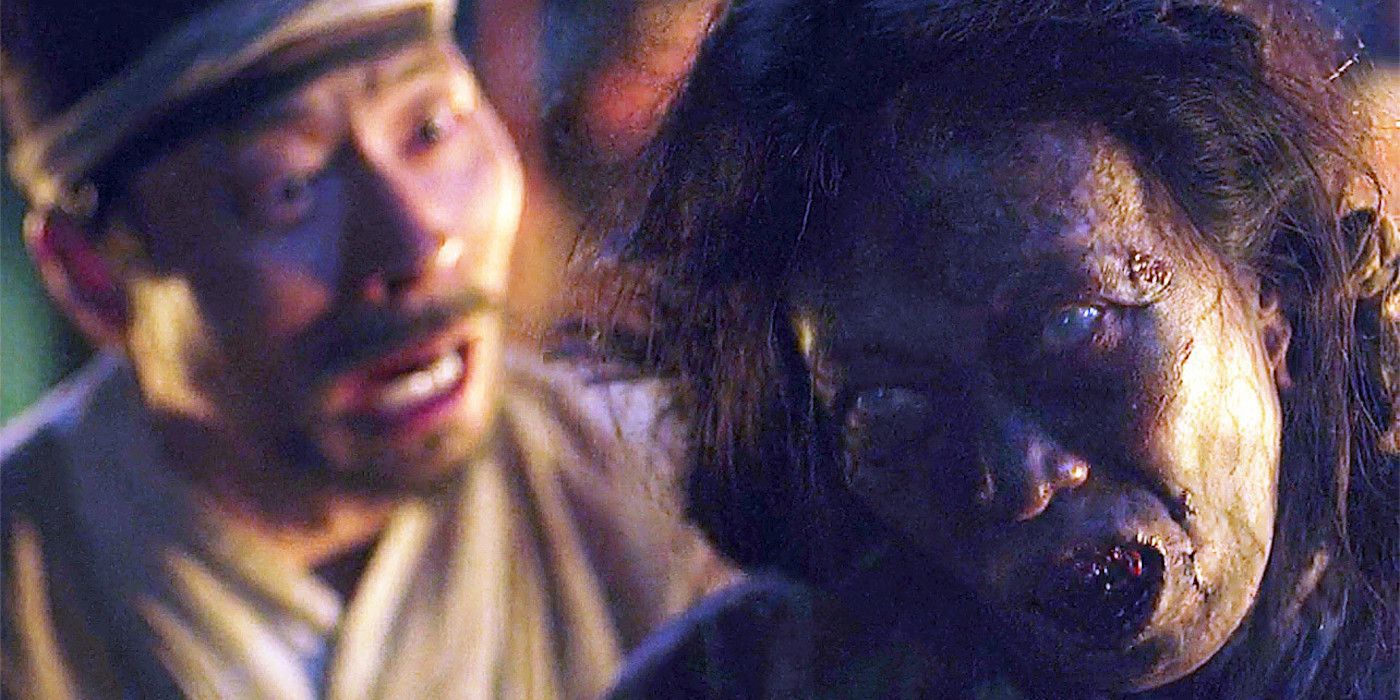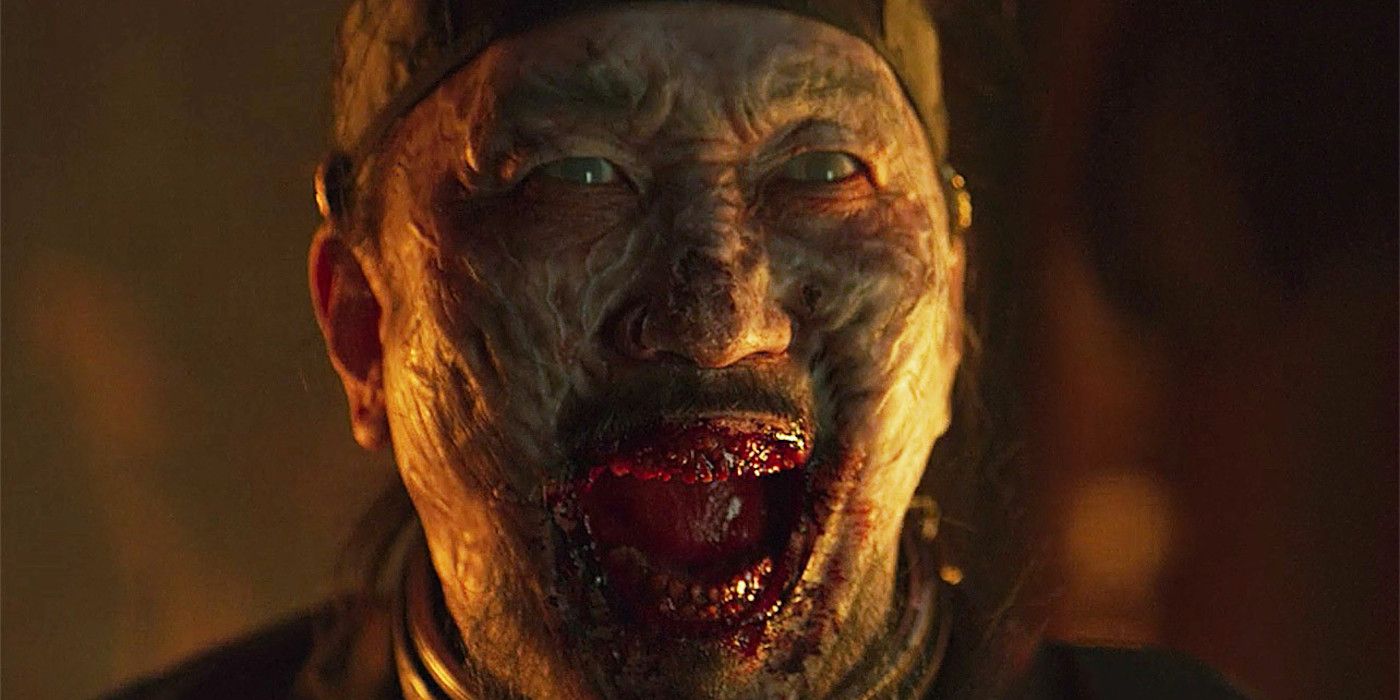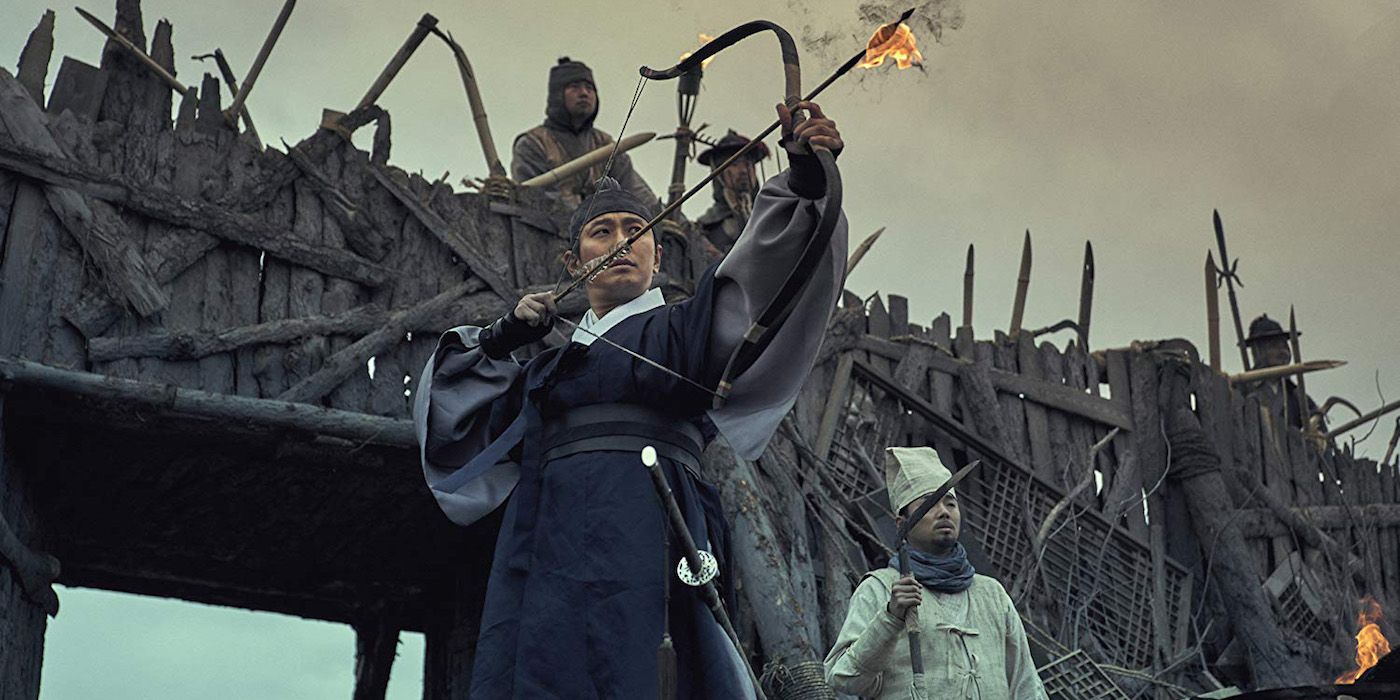WARNING: The following article contains spoilers for Kingdom, streaming now on Netflix.
An undeniable pop-culture phenomenon, AMC's post-apocalyptic drama The Walking Dead has experienced a decline in viewership, but remains a ratings juggernaut, drawing in audiences with the tribulations of survivors trying to rebuild society in a world populated by zombies, and even more monstrous humans.
As good as it has been over the past nine years, the series has its flaws, which helps the South Korean drama Kingdom to stand out even more as a more effective vision of what The Walking Dead could be.
RELATED: Netflix's Kingdom Takes Its Zombie Twist Straight From Game of Thrones
Streaming on Netflix, Kingdom is a better zombie drama for a few reasons, but primarily because it ratchets up the horror aspects of its undead. In 17th-century Korea, a mysterious resurrection plant has transformed the ailing king into a zombie, who then begins to feed upon his subjects, which spreads the infection across the land. These zombies are different from the ones we've come to know in that, like vampires, they hide from the daylight, and contort like demon-possessed monsters when they wake at night. The series doesn't need to rely on excessive gore and violence like The Walking Dead does, because its artsy style, akin to that of the 2016 film Train to Busan, is enough to send chills down your spine.
The pacing of Kingdom doesn't drag like The Walking Dead so often does. It's tightly knit, reminiscent of The Walking Dead's six-episode debut season, so the plot doesn't wander. Kingdom covers ground quickly across several poverty-stricken provinces to create an interesting world more fully realized than the largely interchangeable abandoned towns encountered by Rick Grimes & Co.
The ancient architecture, from houses to temples to castles, and costume design possess a flair that contrasts the bleak zombie raids at night, all set against a backdrop of feuding dynasties. There's even a Game of Thrones-style political scheme to usurp the throne, which has more depth than vagabonds like the Governor trying to establish loose order or Negan killing for the fun of it.
RELATED: What Year Is It On The Walking Dead?
The action sequences and fight choreography are also better, as the zombies move fast, not unlike those from World War Z. Couple that with the resistance's martial artists, archers and swordsmen, and you have the recipe for the most intriguing battles the subgenre has ever seen. Another highlight is that, as a period piece, Kingdom makes even bolder sociopolitical statements than The Walking Dead does. Sure, the AMC series waxes on about class and elitism, but Kingdom wades deep into governance and the divide between the rulers and the suffering populace. That actually serves as the catalyst for the spread of the infection, with starving poor restoring to cannibalism and eating one of the king's victims.
Crown Prince Lee Chang ends up as the story's answer to Rick, as he's forced to experience the real world and redeem himself after what his family did to the lower classes. It's a better character arc that resonates more than a hotshot sheriff becoming the white knight and savior. Kingdom touches further on centuries-old issues, such as overpopulation, with the usurper General Cho willing to allow zombies to thin the growing peasantry.
Lastly, the mystical "resurrection flower" offers a lot of potential as to how, or whether, the zombie plague can be cured, giving us a sense of hope that The Walking Dead lost in Season 1. The revelation that everyone is already infected with the virus imbued the AMC series with an element of fatalism, whereas Kingdom offers a glimmer of hope. Seeing as the season finale hinted that General Cho and some of the prince's accomplices actually used the plant to weaponize zombies decades earlier, Kingdom simply does a better job of underscoring that the true monster is mankind.
Season 1 of Kingdom is streaming now on Netflix.



